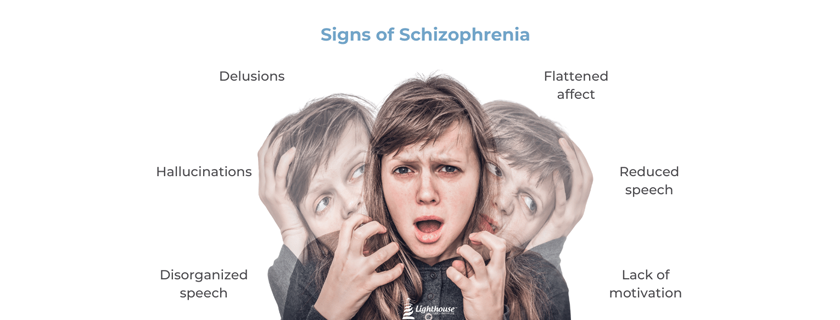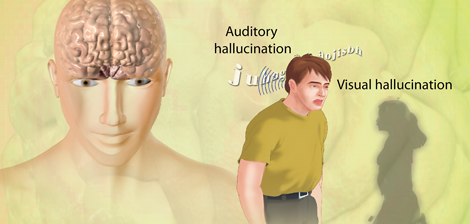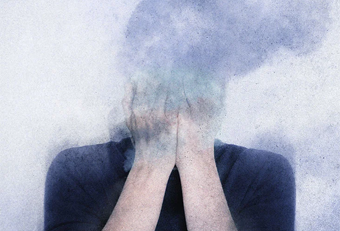
Schizophrenia is a severe mental disorder that affects the way a person thinks, feels, and behaves. It is a chronic condition that typically begins in the late teenage years or early adulthood and can cause significant impairment in a person's ability to function in daily life.
Symptoms of Schizophrenia:
Schizophrenia symptoms can be broadly categorized into three types: positive, negative, and cognitive.
Positive symptoms:
Positive symptoms are characterized by an abnormal perception of reality. These symptoms include hallucinations, delusions, and disorganized speech or behavior. Hallucinations involve seeing, hearing, or feeling things that are not there, while delusions are fixed, false beliefs that a person may hold despite evidence to the contrary. Disorganized speech or behavior can manifest as incoherent speech, bizarre or repetitive behavior, or lack of emotional expression.
Negative symptoms:
Negative symptoms involve a loss of normal functioning, such as a reduction in emotional expression or motivation. These symptoms may include a lack of motivation, a reduced ability to feel pleasure, a lack of interest in socializing, and decreased speech output.
Cognitive symptoms:
Cognitive symptoms of schizophrenia involve difficulties with thinking, memory, and concentration. People with schizophrenia may have trouble with planning, making decisions, and organizing their thoughts.
Causes of Schizophrenia:
The causes of schizophrenia are not yet fully understood, but researchers believe that a combination of genetic, environmental, and biological factors can contribute to its development. The risk of developing schizophrenia is higher in individuals with a family history of the disorder. In addition, certain environmental factors, such as exposure to viruses, toxins, or stress, may increase the risk of developing schizophrenia.
Treatment of Schizophrenia:
The treatment of schizophrenia typically involves a combination of medication and psychotherapy. Antipsychotic medications are often prescribed to help reduce the positive symptoms of schizophrenia, such as hallucinations and delusions. These medications work by blocking the activity of dopamine, a neurotransmitter that is involved in the development of psychotic symptoms.
Psychotherapy can help people with schizophrenia to better understand and manage their symptoms. Cognitive-behavioral therapy, for example, can help individuals with schizophrenia to identify and challenge their negative thoughts and beliefs. Family therapy can also be helpful in improving communication and reducing stress within the family.
Recovery from Schizophrenia:
Recovery from schizophrenia is a long-term process that involves ongoing treatment, support, and self-care. With appropriate treatment, many people with schizophrenia are able to live fulfilling lives and participate in their communities. However, recovery can be challenging, and many people with schizophrenia require ongoing support to manage their symptoms and maintain their well-being.
Prevention of Schizophrenia:
While it is not possible to prevent schizophrenia, early detection and treatment can help to reduce the severity of symptoms and improve the chances of recovery. Family members and friends can play an important role in recognizing the early signs of schizophrenia and encouraging individuals to seek help.


Get Free Appointment
We are more than happy to give advice on which counselling is most suitable for your needs, depending on your problems. Why not ask us to view your problems and discuss for solution.
